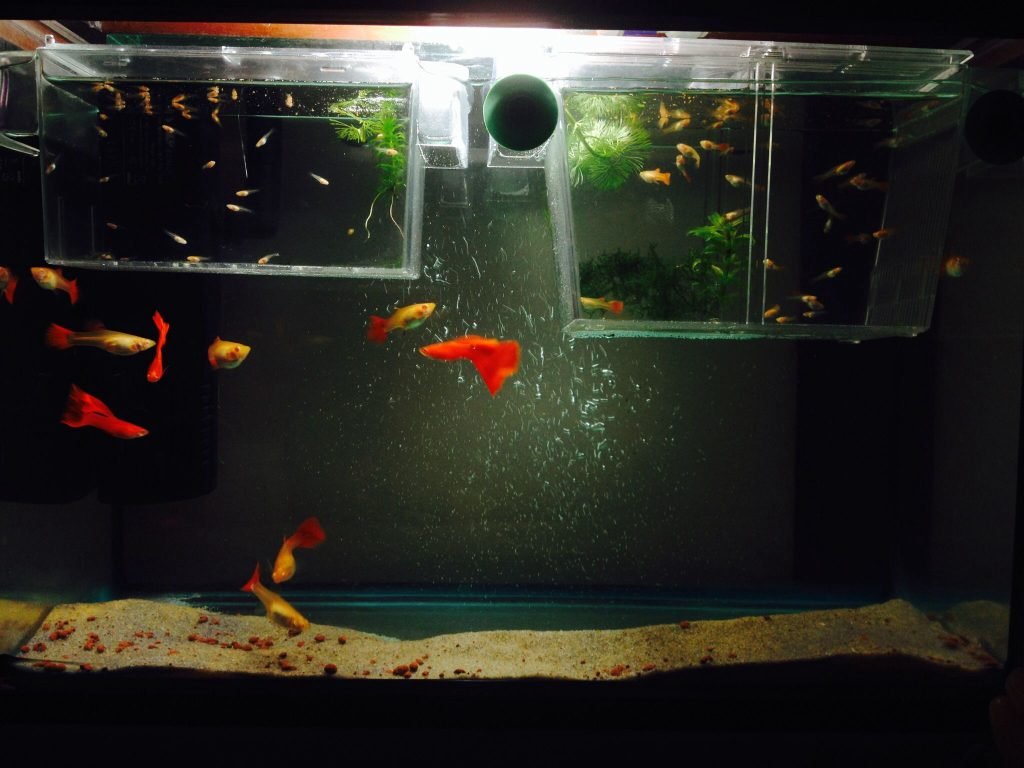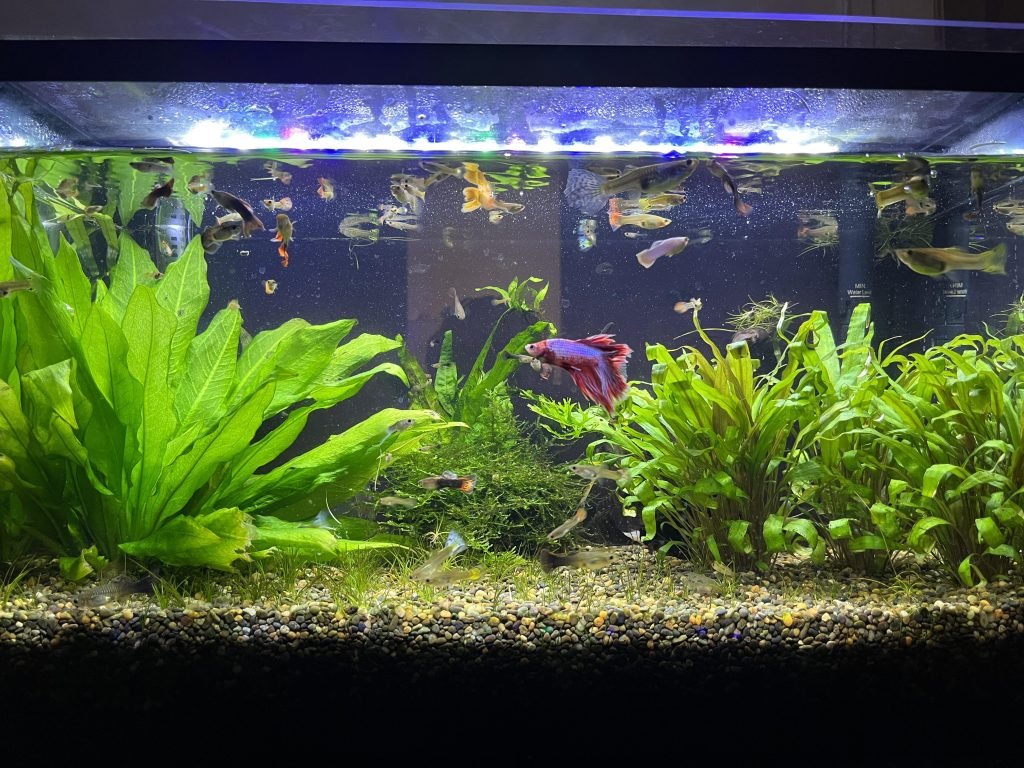Do Guppies Sleep?
Do guppies sleep, or are they more like New York City, running around at any given moment?
How will you know if they do, and what can happen if they don’t?
Stick around and we’ll cover everything you need to know about caring for your fish.

Why Is Sleep Important For Guppies
Sleep is a vital physiological process for many animals, including humans. It allows the body to rest, rejuvenate, and perform necessary functions for overall well-being.
Did you know that most people in the world can’t physically stay awake for more than 3 days straight?
But when it comes to guppies, their sleep patterns differ from those of mammals like humans and other land-dwelling creatures.
How Guppies Sleep VS Humans

Guppies do not experience sleep in the same way we do.
They do not have eyelids, and their brain activity and behavior are not characterized by clear sleep-wake cycles like mammals.
But that doesn’t mean they don’t rest at all.
Guppies do have periods of reduced activity and rest, which can be considered a form of restful behavior.
During these periods of reduced activity, guppies will be staying in one spot, resting at the bottom of the tank, or hovering near plants or decorations.
They may also slow down their swimming and become less responsive to external stimuli. These moments of rest allow them to conserve energy and recharge their bodies.
How Guppies Sleep VS Whales
We’ve mentioned earlier that fish, as a whole, don’t sleep the same way humans and other mammals do.
Water creatures tend to just slow down and rest, but never lose consciousness altogether like we do.
Whales and dolphins tend to rise the the surface of the ocean and breathe while they nap.
They only shut off their mind halfway, so they are able to continue and breathe.
Guppies don’t have to rise to the surface because, unlike whales and dolphins, they have gills.
Their gills help tend get all the oxygen they need from the water, unlike mammals who rely on lungs to breathe.

How Do Guppies Sleep?
While guppies do not experience deep sleep or have traditional sleep patterns, it is still important to provide them with a suitable environment that allows for restful behavior.
This includes ensuring the aquarium has hiding places, plants, and other structures where guppies can retreat and feel secure during their rest period.
Guppies are a type of fish highly sensitive to stress. One easy way to fix it and prevent it altogether is to provide ample hiding spaces for them to enjoy.
How Many Hours Of Sleep Do Guppies Need?
Guppies need at least 6-8 of restful sleep every night.
Without it, they may become prone to stress and disease.
If you have a planet tank then you probably have aquarium lights that help your plants thrive. But that doesn’t mean you should leave the lights on around the clock.
It’s best to allow about 8 to 10 hours of light in your aquarium.
This will allow your guppies to swim and explore during the daytime but also cut down on the chances of an algae bloom.
The best way to make that happen is to use a timer, which is programmable for different times of the day. They’re pretty cheap and work like a charm.
What Lights Should I Use?
Guppies, and fish in general , are not sensitive to a any certain spectrum of light.
But plants will be. Assuming you’re going with plans you’re gonna want to imitate nature as much as possible and get a light that will stimulate them and resemble the sunlight in order for them to photosynthesize.
Usually you’d want to get either a T5 and T8 florescent light- those are sufficient and inexpensive lights for a guppy set up.
Does Sleep Make Guppies Grow?
Sorta no. I’ll explain.
If you are breeding guppies, then you’ll be able to stimulate growth by leaving the lights on for longer than you would with adults.
Leave the lights on for about 12-18 hours a day to keep them active and eating. Guppies can’t see in the dark, and will not eat at night time.
